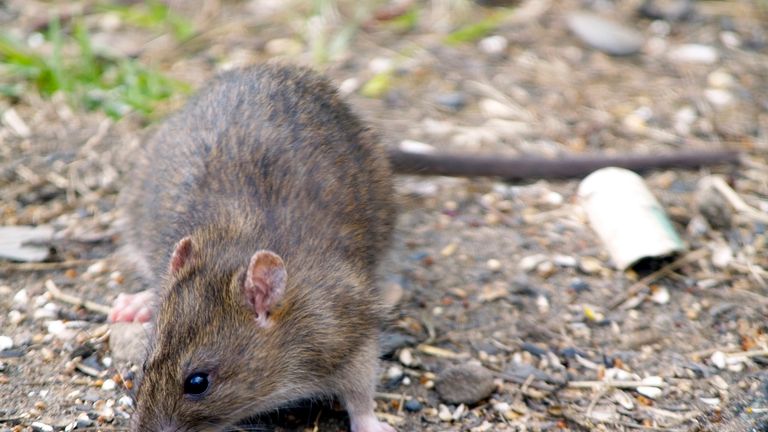Black Death: Plague was spread by humans and not rats, study suggests
New research challenges the received wisdom that rats were responsible for disseminating one of the worst pandemics in history.
Tuesday 16 January 2018 15:32, UK
Humans could have been responsible for the spread of the plague during the Black Death, a new study has suggested.
It has long been the received wisdom that rats were behind the dissemination of one of the worst pandemics in human history.
The Black Death devastated medieval Europe from 1346 to 1353, killing an estimated 75 to 200 million people.
It was caused by the bacterium yersinia pestis, which lasted on the continent until the 19th century.
Scientists from the University of Oslo in Norway and the University of Ferrara in Italy now say they believe human "ectoparasites", such as body lice and human fleas, might be more likely to have caused the pandemic.
They have tracked how the plague developed by using mortality data from nine plague outbreaks in Europe between the 14th and 19th centuries.
The team used the data to create models of how a disease could be spread by rats, airborne transmission, and fleas and lice on humans and clothes.
It was discovered that in seven of the cases there was a closer resemblance between the human model and the outbreak when compared with the others.
Their paper has been published in the Proceedings of the National Academy of Science.
In it, they say: "While it is commonly assumed that rats and their fleas spread plague during the Second Pandemic, there is little historical and archaeological support for such a claim.
"Here, we show that human ectoparasites, like body lice and human fleas, might be more likely than rats to have caused the rapidly developing epidemics in pre-Industrial Europe."




